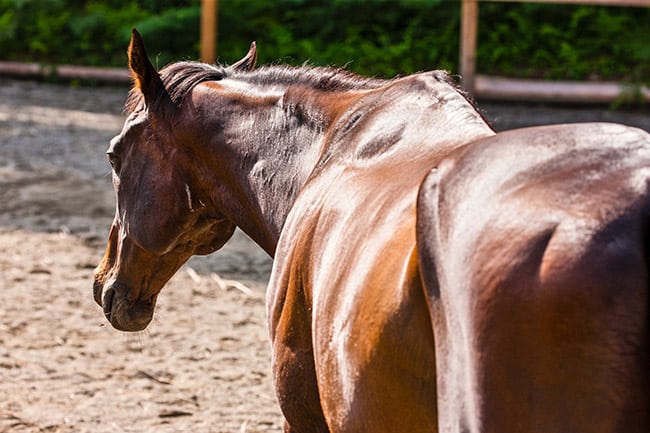
5 Ways to Minimize Odors on Horse Farms
These 5 steps can help you prevent and eliminate odors on your farm and create a cleaner space for your horses.

These 5 steps can help you prevent and eliminate odors on your farm and create a cleaner space for your horses.

Learn how to store hay and grain properly—keeping nutrients in and mold, rodents, and spoilage out.

Find out how to manage and remove horse waste from your farm in a safe and effective way.

If you can see your horse’s ribs or his topline is lacking, he might need to gain weight or muscle. But how can you tell which he needs?

Sustainable hay production involves practices that protect the environment while yielding high-quality hay. Here’s how to grow or source sustainably produced hay.

While steeped in tradition, feeding bran mashes can cause GI distress in horses. Learn why, and discover alternatives.

Sourcing lower-energy hay and implementing slow-feeding strategies can help reduce your horse’s risk of becoming obese and developing metabolic problems.

An equine nutrition expert addresses toplines, horse protein needs, and if whey is the way to go.

Although researchers have shown horses prefer untreated hay, it is safe for horses to eat hay treated with preservatives. An equine nutritionist explains why.

Your horse’s nutritional requirements depend on his life stage and individual needs.

Learn how to tailor your mare and foal’s feeding program from late pregnancy to weaning with expert guidance.

An equine nutritionist explains the best way to switch your horse to a new hay and what to do if you have limited hay storage.

Can feeding hay cut later in the season lead to impaction colic in horses?

Get tips for ensuring your horses gets the nutrition they need without eating all your money.

Not all carbohydrates are created equal, and “low-carb” definitely doesn’t mean “no-carb.” A nutritionist explains.

A nutrition expert offers advice on preventing weight gain and boredom while a hefty horse is on stall rest.
Stay on top of the most recent Horse Health news with
"*" indicates required fields